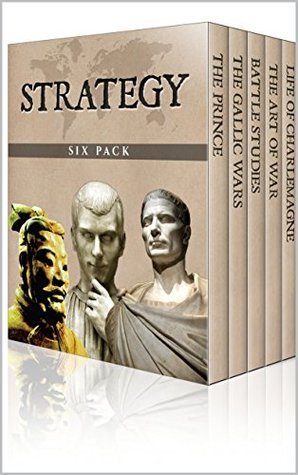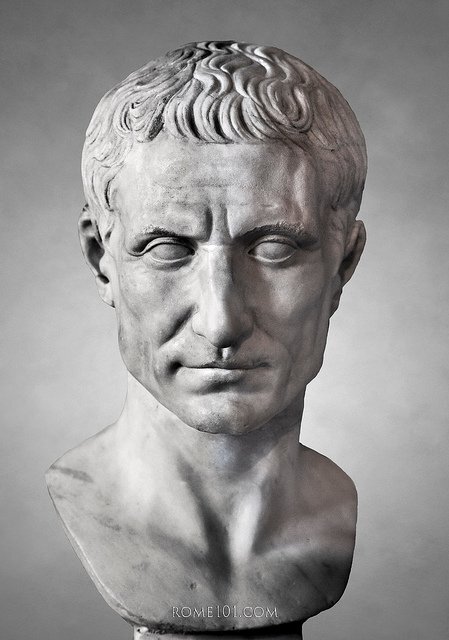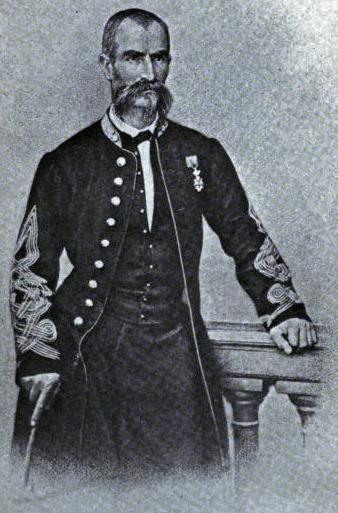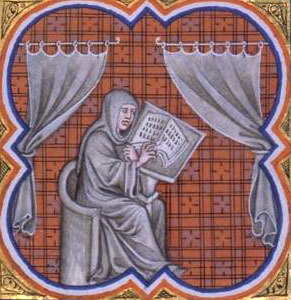
Authors

Sun Tzu (孫子; pinyin: Sūnzǐ) is a honorific title bestowed upon Sūn Wu (孫武 c. 544-496 BC), the author of The Art of War (孫子兵法), an immensely influential ancient Chinese book on military strategy. Sun Tzu believed in the use of the military sciences to effect outcomes that would result in peace. In the author's name, Sūn Wu, the character wu, meaning "military", is the same as the character in wu shu, or martial art. Sun Wu also has a courtesy name, Chang Qing (Cháng Qīng).

Gaius Julius Caesar, known as Julius Caesar, was a Roman politician, general, and notable author of Latin prose. He played a critical role in the events that led to the demise of the Roman Republic and the rise of the Roman Empire. In 60 BC, Caesar, Crassus, and Pompey formed a political alliance that dominated Roman politics for several years. Their attempts to amass power as Populares were opposed by the Optimates within the Roman Senate, among them Cato the Younger with the frequent support of Cicero. Caesar's victories in the Gallic Wars, completed by 51 BC, extended Rome's territory to the English Channel and the Rhine. Caesar became the first Roman general to cross both the Channel and the Rhine, when he built a bridge across the Rhine and crossed the Channel to invade Britain. These achievements granted him unmatched military power and threatened to eclipse the standing of Pompey, who had realigned himself with the Senate after the death of Crassus in 53 BC. With the Gallic Wars concluded, the Senate ordered Caesar to step down from his military command and return to Rome. Caesar refused the order, and instead marked his defiancé in 49 BC by crossing the Rubicon with the 13th Legion, leaving his province and illegally entering Roman Italy under arms.[3] Civil war resulted, and Caesar's victory in the war put him in an unrivalled position of power and influence. After assuming control of government, Caesar began a programme of social and governmental reforms, including the creation of the Julian calendar. He centralised the bureaucracy of the Republic and was eventually proclaimed "dictator in perpetuity", giving him additional authority. But the underlying political conflicts had not been resolved, and on the Ides of March (15 March) 44 BC, Caesar was assassinated by a group of rebellious senators led by Marcus Junius Brutus. A new series of civil wars broke out, and the constitutional government of the Republic was never fully restored. Caesar's adopted heir Octavian, later known as Augustus, rose to sole power after defeating his opponents in the civil war. Octavian set about solidifying his power, and the era of the Roman Empire began. Much of Caesar's life is known from his own accounts of his military campaigns, and from other contemporary sources, mainly the letters and speeches of Cicero and the historical writings of Sallust. The later biographies of Caesar by Suetonius and Plutarch are also major sources. Caesar is considered by many historians to be one of the greatest military commanders in history. During his lifetime, Caesar was regarded as one of the best orators and prose authors in Latin—even Cicero spoke highly of Caesar's rhetoric and style. Only Caesar's war commentaries have survived. A few sentences from other works are quoted by other authors. Among his lost works are his funeral oration for his paternal aunt Julia and his Anticato, a document written to defame Cato in response to Cicero's published praise. Poems by Julius Caesar are also mentioned in ancient sources.


Historian, born c. 770 in the district of the River Main in the eastern part of the Frankish Empire; d. 14 March, 840, at Seligenstadt. His earliest training he received at the monastery of Fulda, where he showed such exceptional promise that Abbot Baugulf sent him to the court of Charlemagne. His education was completed at the Palace School, where he was fortunate enough to count among his masters the great Alcuin, who bears witness to his remarkable talents in mathematics and architecture, and also to the fact that he was among the emperor's most trusted advisers. Charlemagne gave Einhard charge of his great public buildings, e.g. the construction of Aachen cathedral and the palaces of Aachen and Ingelheim. Charlemagne also availed himself of Einhard's tact and prudence to send him on various diplomatic missions. The most important of Einhard's works is the Vita Caroli Magni. This, the best biography of the whole period of the Middle Ages, written in close imitation of Suetonius, shows the emperor from the standpoint of the most intimate personal acquaintance with all sides of his character, and with a genuine attempt at truth of portrayal. The diction is in general elegant, though not polished. The annals of the Carolingian Empire, which have been handed down as Einhard's, are, in their present form, older materials worked over. Those for the years between 796 and 820 may date back to Einhard. In addition, we have from his hand the Translatio et Miracula SS. Marcellini et Petri, containing data which are important for the history of culture. The seventy-one letters, written by Einhard between 825 and 830 in a clear, simple style, constitute an important source for the history of Louis the Pious. (Source: The Catholic Encyclopedia)